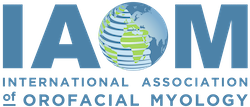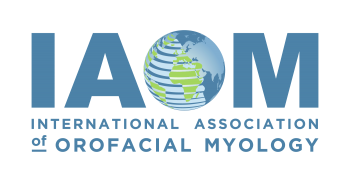Author: Lorraine Frey RDH, LDH, BAS, COM®, FAADH
Licensed healthcare professionals are held to specific standards of care and allowable duties in the area they are licensed to practice. Likewise, the creden- tials one may use after their name must be legitimately earned. In the realm of orofacial myofunctional therapy, it is becoming increasingly common for some individuals to use the letters “OMT” after their “RDH” credential.
A legitimate credential is one that is earned from an academic institution or a recognized professional organization. A licensed professional cannot create their own credentials, by selecting letters to represent what they do, and place them after their name.
In holding a number of active state licenses, I called to speak directly with the boards of the states I’m licensed in to inquire about the use of credentials. I received the same response from each board I spoke with, that “OMT” is not a legitimate credential. Rather, it is a self-described acronym, an abbreviated subjective descriptor to indicate what one does. It would be the same as using the letters “PHS” (periodontal hygiene specialist) or “LTH” (laser trained hygienist) or “OSS” (oral systemic specialist) after one’s name. None of these acronym descrip- tors are permitted, and advertising a credential that is not legitimately earned is considered to be misleading the public and can be subject to disciplinary action.
Orofacial myology has been included in the dental hygiene practice act since 1992. With additional, formal training, a dental hygienist can provide orofacial myofunctional therapy. Additionally, a dental hygienist does not need to be certified in order to provide myofunctional therapy services. What a dental hygienist cannot do is use self-abbreviated subjective descriptors to advertise and indicate specialty in the field. Take a course in myofunctional therapy does not mean that one is “certified” after completing a course. This applies to all courses, IAOM approved or not. Completing a course, any course, is not certification.
The “COM” credential, issued by the IAOM, is a recognized and legitimate credential. Certification is in no way licensure; it is, however a professional certification issued by a recognized, established, professional organization and is only provided to those already licensed healthcare professionals who have demonstrated proficiency in the specialty, significant hours of continuing education, and have passed written and clinical examinations. It also assures the public of this expertise, as well.
I encourage those who have questions to contact their state regulating boards. I believe that anyone who holds a license to practice would not wish to jeopar- dize the good standing of their license. While it should be common sense for a licensed healthcare professional to know that they cannot place indiscriminate letters after their name to imply an earned credential, it would appear otherwise.
Respectfully, Lorraine Frey
Lorraine is a Certified Orofacial Myologist®, providing myofunctional therapy services with 30 years of clinical practice in periodontal, general and pediatric private practice settings. Lorraine attended Prairie State College in Chicago for dental hygiene and earned her bachelor’s from Siena Heights University in Michigan. Additionally, she completed post-graduate study with the Academy of Orofacial Myofunctional Therapy and The Coulson Institute and is board certified by the International Associa- tion of Orofacial Myology.
Lorraine has received her Diploma of Buteyko Breathing Therapy and was granted Fellowship in Clinical Practice in concentration of Orofacial Myology by the American Academy of Dental Hygiene. Lorraine maintains a full-time practice providing orofacial myofunctional therapy services in Granger, IN and Chicago, IL.
Published in the quarterly newsletter Orofacial Myology News, which is put out by Neo Health Services. Sandra Holtzman, MS,CCC/SLP,COM® is a member of the IAOM, and has been publishing Orofacial Myology News since 2000.

